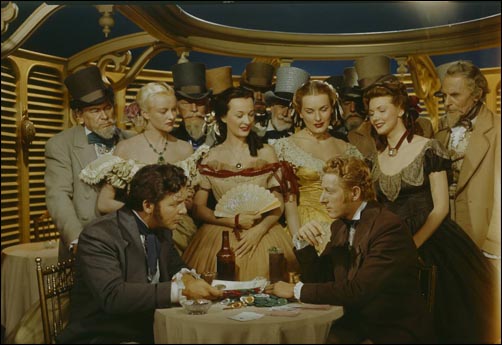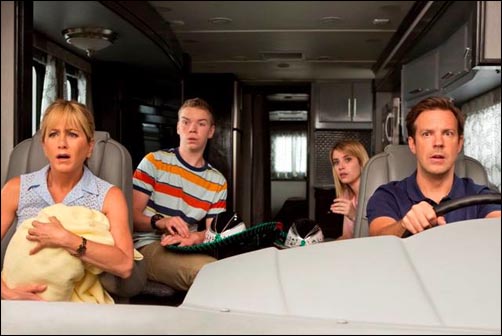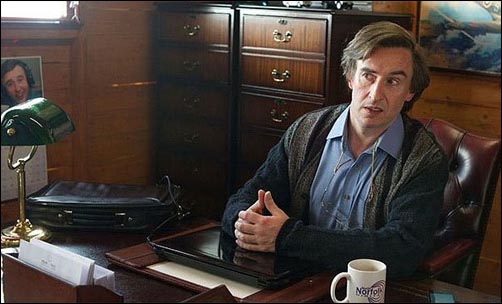
After making Sleepers (1996) and Wag The Dog (1997) in quick succession, it would be another eleven years before Barry Levinson directed Robert De Niro again. The result was What Just Happened (2008), a movie that takes a look behind the curtain of the movie industry. While Wag The Dog featured a film producer determined to take credit for his part in a huge spin operation, What Just Happened goes to show that film production, with all its stresses, is a thankless task.
There’s plenty going on in the life of Ben (De Niro), one of Hollywood’s most powerful producers, whose star power is beginning to lose its twinkle. His recent movie tested poorly with audiences and its director, despite not having final cut, is keen to preserve its artistic integrity despite the studio’s pressure to apply loss limitation by changing the ending. Ben’s forthcoming movie is also under threat, this time of never being made if its star, Bruce Willis (as himself), won’t shave off his massive beard. And if his professional life isn’t hectic enough, there’s the domestic issues to contend with also, chief among them a second ex-wife who he can’t quite split with despite her sleeping with a married screenwriter on the side.
The two weeks of the movie’s timeframe sees Ben negotiate all these issues with different levels of success. De Niro contributes an unmemorable performance, which is disappointing in the context as, with his long filmography, there must be a line of producers to take inspiration from. It may be that he keeps it all in — his first ex-wife notes that secrets seem to be the family business — and that’s why he remains practically blank throughout, although it just feels that there’s little to work with. Indeed, it’s the supporting cast that adds colour.
Stealing the show is British film director Jeremy Brunell (Michael Wincott‘s blend of Keith Richards and Sid Vicious) who cares only for his artistic integrity in fierce opposition to the Hollywood machine, represented by Catherine Keener‘s bottom-line obsessed studio executive. Or, as he puts it: “you can make a film that has a bit more profundity to it and somehow people actually remember, or the same old load of bollocks”. John Turturro, Stanley Tucci, and, Kristen Stewart do well with their occasional appearances. But it’s the actors playing themselves that appear to be relishing their roles. Sean Penn, star of Brunell’s movie (its contentious finale showing a dog getting shot in the head), worries that the film will still have “edge” after the cut for Cannes changed the finale. And Bruce Willis relishes sending himself up while simultaneously mocking the pompous behaviour of an overpaid Hollywood prima donna.
As a comedy What Just Happened throws up the occasional laugh without really being funny and as a satire it doesn’t cut deep enough, but there’s a perfectly decent, if lack-lustre, story here. Based on the memoirs of Art Linson — incidentally also the screenwriter and producer here — this study of Hollywood politics perhaps suffers due to Linson’s overbearing closeness to the material. It certainly brings up issues of art versus money but it doesn’t quite burst the bubble that Hollywood has made for itself. There are many subtle in-jokes (such as a Jewish agent who, like many others before him, has changed his name to something more Gentile) or hints at the industry’s lust for money and the audience pandering it will do to bring in dollars. But, in the course of the movie, What Just Happened turns out to be not that much. It just shows that even those deemed powerful within the system still answer to someone.



